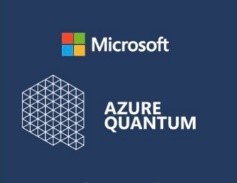
By Dan O’Shea posted 19 Jun 2024
Microsoft has added two new capabilities related to chemistry and material sciences to its Azure Quantum Elements portfolio of quantum computing and AI offerings, and also is working with consumer products giant Unlilever on research leveraging quantum and AI.
These announcements came this week, almost exactly one year after Microsoft CEO Satya Nadella announced the Azure Quantum Elements program amid a series of announcements that appeared to be Microsoft staking a claim in the evolving integration of quantum and AI technologies.
The first of the new capabilities is Generative Chemistry, and end-to-end workflow that will soon be available in private preview through Azure Quantum Elements. Generative Chemistry uses generative AI technology to examine massive datasets of molecules and molecular combinations to help narrow down the list of most useful candidate molecules to be used for further testing.
The second of the new capabilities is called Accelerated Density Functional Theory (DFT), which is a code that can be used to simulate the electronic structure of molecules to allow researchers to determine the properties of molecules with thousands of atoms in a matter of hours, according to Microsoft.
“It performs substantially faster than other DFT codes, and offers a 20-fold average increase in speed compared to PySCF, a widely used open-source DFT code,” said Dr. Nathan Baker, Product Leader, Azure Quantum Elements, Microsoft, in a blog post that further details both new capabilities.
Regarding Microsoft’s work with Unlilever, Alberto Prado, Unilever’s Global Head of R&D Digital & Partnerships, said in an interview published on Unilever’s website, “Recently, we’ve been looking at how to bring generative AI into our suite of capabilities around Datalab [the company’s virtual R&D laboratory]. We’ve also begun experimenting with quantum computing. It’s a gamechanger in terms of the speed and amount of data it could allow us to process… Azure Quantum Elements allows us to do things faster and better. Using a simulation to predict what might happen based on the chemistry of the molecules, we can now test them without needing someone to actively manufacture them. This generates new insights, new innovative thinking and new technology options… We’re also testing new material discovery. So, if we’re looking at a particular molecule, we can determine if it has a specific performance characteristic. For example, if a molecule doesn’t dissolve in water, we can’t put it in a shampoo or washing powder.”
Dan O’Shea has covered telecommunications and related topics including semiconductors, sensors, retail systems, digital payments and quantum computing/technology for over 25 years.
- SEO Powered Content & PR Distribution. Get Amplified Today.
- PlatoData.Network Vertical Generative Ai. Empower Yourself. Access Here.
- PlatoAiStream. Web3 Intelligence. Knowledge Amplified. Access Here.
- PlatoESG. Carbon, CleanTech, Energy, Environment, Solar, Waste Management. Access Here.
- PlatoHealth. Biotech and Clinical Trials Intelligence. Access Here.
- Source: https://www.insidequantumtechnology.com/news-archive/microsoft-adds-new-capabilities-to-azure-quantum-elements-highlights-work-with-unilever/



